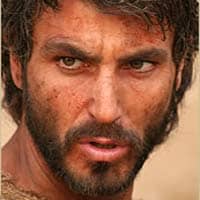
Now Sue Monk Kidd is experiencing the culmination of that novel's success as 'The Secret Life of Bees' has become a major motion picture starring Dakota Fanning, Oscar winner Jennifer Hudson and Queen Latifah. In a conversation from her home in South Carolina, Kidd shares her thoughts on the themes and characters of her beloved book with the kind of humility, humor and grace fans of her work might expect.
It seems as if you have always incorporated faith as an important element in your writing. How important is it to you to combine spirituality and storytelling when you write?
My stories have a deep spiritual core because I have a deep desire to understand things of the spirit, but yet I don't think I've written these stories from any kind of specific religious agenda because I don't think that would work. Stories are amazing and powerful because they can resonate with people depending on their needs and experiences and speak truths we need to hear in that moment in time.
Did you have any concerns about the translation of 'Bees' from the page to the screen?
I've seen the movie twice now, and I can definitely say I am genuinely pleased with how the process turned out. It's very difficult to translate matters of the heart and soul from one medium to another, but the film is very true to the book.
One of the themes in the book is forgiveness. To what extent do you feel like that theme translates itself to the movie?
I think that forgiveness stays at the forefront of the story. I learned a long time ago that some people would rather die than forgive. It's a strange truth, but forgiveness is a painful and difficult process. It's not something that happens overnight. It's an evolution of the heart. We see that in Lily, I think, and her journey to forgive her father.
Many critics have pointed out that the Boatwright sisters are a representation of the icon of the Black Madonna. Was that an intentional decision on your part?
I have definite ideas about the nature of the sacred and they're somewhat eclectic, and I do think the Black Madonna is an important archetypal figure [in religion]. It seems like it is returning in a way and is filling an important void as a symbol of nurturing, especially in a time where family is being redefined and it doesn’t always look like it used to.
Is that another theme you chose to weave into your story? The importance of finding a spiritual family to connect to?
I don’t know that I deliberately thought of it that way, but I did want to focus on the loss of a parent and how do you fill that hole in your life, because that is the experience of so many young people.
What exactly, in your opinion, is it about this story that has created such a deep connection with people all over the world?
I believe the audience becomes emotionally invested with these characters because these characters are vulnerable, and, in the end, love conquers all. And I think that is ultimately the theme of the story: love conquers all. But the trick is that unless you forgive, you can never find that love.
What is the biggest way 'Bees' has changed your life?
It’s always been my hope that I would write a story that would inspire and would connect with people in a way that would touch hearts. I suppose every novelist hopes for that on some level, but I am really grateful that I have been able to have that experience.

